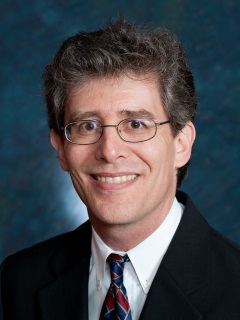Letter from Rabbi Ross
 From the Rabbi’s Desk:
From the Rabbi’s Desk:
Please save the date, Sat. 6/8, for the holiday of Shavuot!
B’nai Jerushun in Beachwood is hosting a Tikkun Leil Shavuot – Community Night of Learning. TBS and Kent State Hillel are co-sponsors this year! Many Rabbis and educators in the community will be teaching in this all-night learning event! Yes, teens are welcome too! I will be teaching a chanting/meditation session at 11:30 p.m, and Rabbi Brown will teach a text study at 2:30 a.m. Oudi Singer will also be teaching that evening.
Below is my upcoming column in the Hub:
The Jewish holiday of Shavuot begins at sundown, Saturday June 8, and concludes two days later, on Monday, 6/10, at dusk. Rabbi Michael Ross is the Rabbi at Temple Beth Shalom in Hudson and the Senior Jewish Educator at Kent State Hillel.
Shavuot is not a well-known, or deeply celebrated holiday compared to Passover, Chanukkah, and Yom Kippur. Seven weeks after the Passover seder, Jews mark the spring harvest festival with cheesecake and dairy feasts. Because this holiday is rooted in the experience of Mount Sinai and the desire to maintain our obligations through education, this holiday has been a time when many synagogues hold their Confirmation ceremonies and graduation ceremonies in honor of student learning.
At Passover, Jews try and relive the myth of leaving slavery in Egypt and entering freedom. Seven weeks later, we enter the other bookend myth, of arriving at Mount Sinai and experiencing revelation. At Shavuot, we are wondering about the terms of the covenant, and how can we fulfill this covenantal relationship in contemporary times.
Traditionally, this was understood as observing the 613 commandments, or mitzvot.
I want to offer us a new take at the covenant to try and make it relevant today.
About a decade ago, I realized that few Jews in my generation felt obligated to perform the commandments. Unlike my parents’ generation, which still feels a sense of obligation, my generation needed to find direct ways to connect to the sense of obligation to spiritual living and spiritual community.
I call my idea, the “Four Embraces.” They are four categories of spiritual life that can encourage us to be our best selves.
1. Embracing “holiness” in your spiritual self-care. What brings you a sense of groundedness, and centeredness in your life today? Whether it’s prayer, meditation, yoga, running, gardening, how can I cultivate a deeper, nourishing practice that will replenish my body and my soul?
In this category, I often draw inspiration from the Jewish mystics who developed the language and architecture of deep inner exploration.
2. Embracing “holiness” in your relationships. When do you notice holiness in your relationships? How can you be radically present to your beloveds and friends? Can I spend more time actively listening to these folk and deepen each of my relationships?
Here, I often turn to Jewish philosophers, like Martin Buber and Franz Rosenzweig, who explored the theology of relationship.
3. Embracing “holiness” in your spiritual community. When I am in my spiritual community, I notice that I don’t only take care of my own needs, but I also try and function for the benefit of my community. How can I deepen and strengthen my community by both showing up and serving the needs of my group?
In this category, I look to teachers like Mordecai Kaplan, who dedicated his life’s work to exploring the dynamics of healthy Jewish community.
4. Embracing “holiness” in your lifelong learning. Many of us stop our formal learning after we graduate from college. Many spiritual seekers stop formal education when we affirm our spiritual path in a coming-of-age ceremony like a bar mitzvah. How many of us never learn about our spiritual wisdom traditions as adults? How can we bring our adult perspectives and mature thinking to our spiritual lives? How can we become curious about our wisdom traditions?
Finally, in this category, I draw inspiration from my students who push me to be the best teacher I can.
What I love about these four categories is that it does not matter if one is more observant or less observant. Each individual can find their own path, based on their own life experiences to this work.
This Shavuot, as we recommit to our covenantal relationship to divinity, may we find ways to embrace these four spiritual practices.
Upcoming TBS Gatherings:
Fri. 6/7, 7:45 p.m.: Kabbalat Shabbat with Jangila Rockland. (Meditation at 7:00 p.m.)
Sat. 6/8, 9:30 a.m.: Quinn Dallet Bar Mitzvah
Sat. 6/8, 6 pm to 6 am: Tikkun Leil Shavuot – Community Night of Learning, B’nai Jerushun, Pepper Pike
